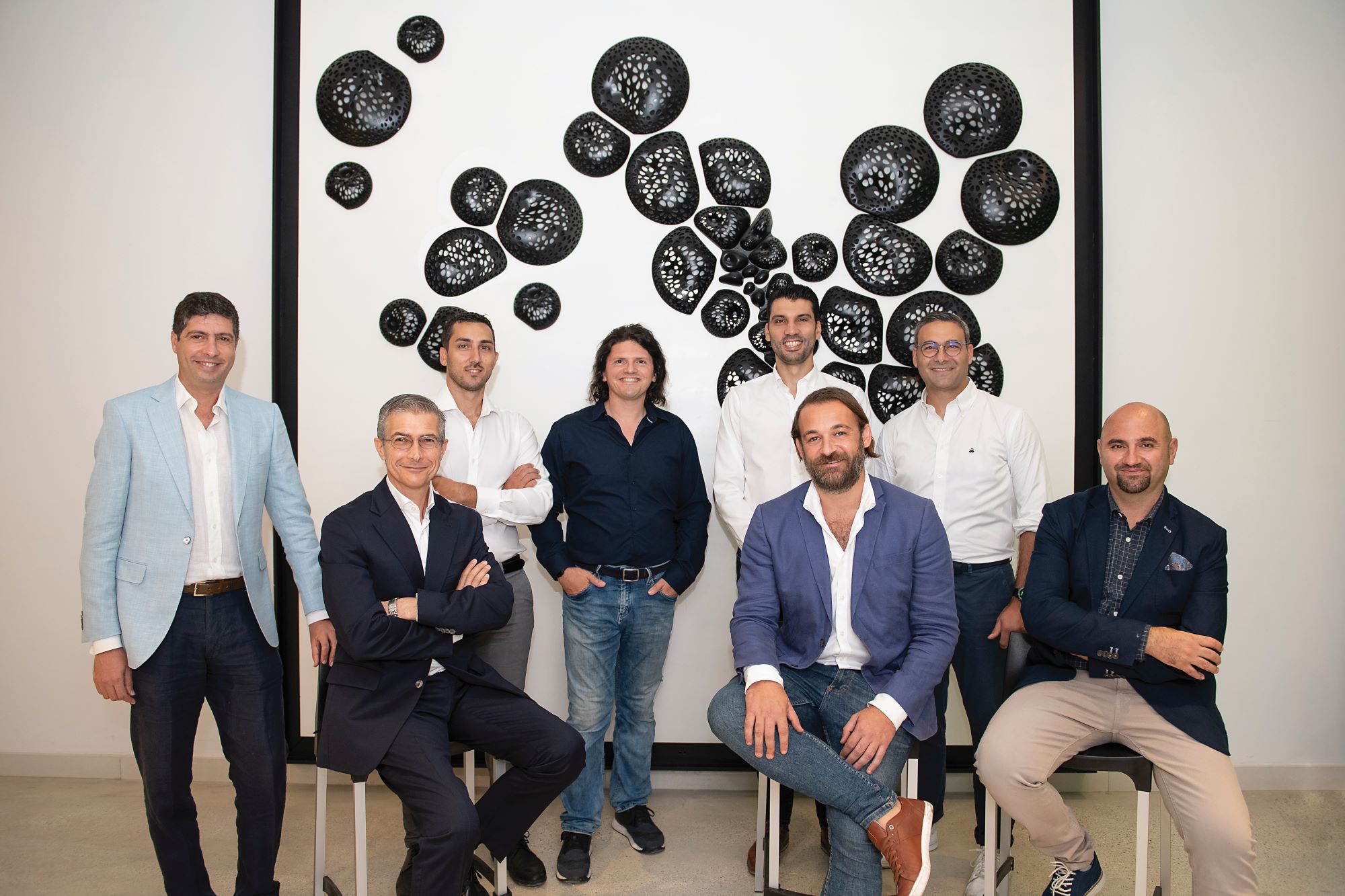While the foundations for making Malta a digital hub at the centre of the Med continue to be laid through public and private investment, there’s no local shortage of creative leaders and thinkers striving to design technologically-advanced solutions for business and the overall advancement of society.
This series catches up with the island’s foremost tech and digital entrepreneurs to understand what they do, and what the future holds.

(Standing, left to right) Kristian Zarb Adami, Edward Borg, Angelo Dalli, Johan Zammit & Gege Gatt / (Seated, left to right) Brian Zarb Adami, Simon Azzopardi & Stefan Farrugia
Those pictured form part of the 'Changing the tech game' series / Picture taken by Bernard Polidano
About yourself, your company and your greatest professional accomplishment to date…
I have traditionally been an academic with an interest in problems of a more abstract nature, going on to study physics at the University of Cambridge and specialising in data analysis to understand the expansion of the universe.
Over the past 20 years, I have spent my time shuttling between the University of Oxford and MIT – Massachusetts Institute of Technology, while holding a post at the University of Malta, and eventually setting up ISSA – the Institute for Space, Sciences and Astronomy.
Having garnered an expertise in developing mobile imaging autofocus systems for mobile cameras, and a specialisation in data processing software, while working with the international teams to build the world’s largest telescope, I decided to apply my skills to more real-world problems – and IO-Labs was born.
What are the latest developments in your sector?
The main goal of IO-Labs is to marry the requirements of real-time imaging systems and other sensor types – such as radar, thermal and optical systems – with the strength of AI and Machine Learning algorithms. This provides our clients and end-users vital seconds to make real-time decisions with all the available information and inferences.
For example, one of the products going through the development process in partnership with Methode Electronics and a top luxury sports car manufacturer, combines the power of cameras, thermal images and radar systems to alert drivers of obstacles in poor weather and lighting conditions.
Our future roadmap involves developing modules that can be used for the early diagnosis of respiratory diseases, such as COVID-19, as well as cardiovascular conditions. I believe the best use of science is to prolong people’s quality of life, while transforming healthcare to homecare; and much of IO-Labs’ R&D division looks at exactly that.
What developments do you foresee for Malta to become a digital island?
It’s exciting to see the AI sector growing steadily. Malta has been an early adopter of ICT technologies and our university is very strong in producing bright, young graduates capable of developing future technologies. Couple this with a strong communication infrastructure, a mild climate and an English-speaking population, and Malta is an ideal destination for digital investment.
What I find lacking, compared to places like Silicon Valley, is the entrepreneurship and venture capital/ angel investment infrastructure that technology startups depend on so much at the start of their journey. The University of Malta foresaw this a few years ago and set up the Knowledge Transfer Office, but there are several opportunities the Government can tap to drive this, such as tax breaks for early investor programmes, incentives for digital start-ups and reskilling the workforce to foster the growth of such start-ups.
Having said this, I think the Government has recognised the importance of the digital economy and is moving towards the creation of an infrastructure where start-ups can flourish. Hopefully, Malta will see its first unicorn company over the next decade.
This is the first of a series of interview with Malta's leading tech entrepreneurs. This feature was first carried in the 2021 edition of Digital Island.
Main Image:IO-Labs CEO Kristian Zarb Adami; Photographer - Bernard Polidano
